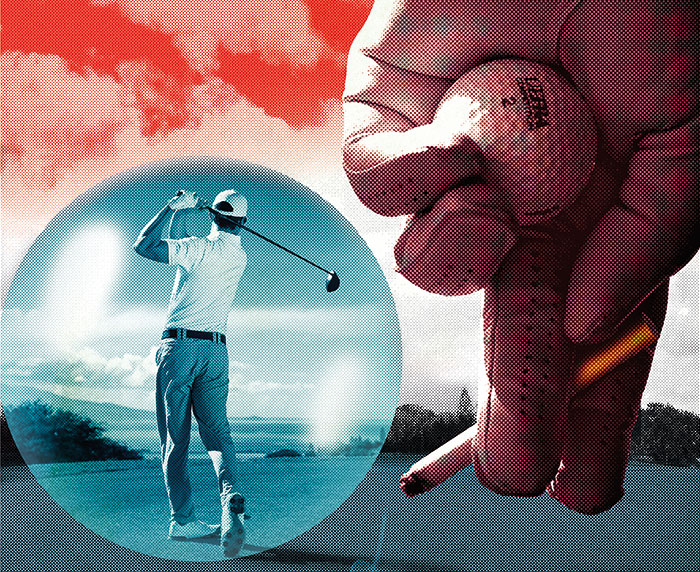Garth Milne talks about the nature versus nurture concept
While walking down the 10th fairway at Augusta, I was asked by a fellow trainer on the PGA Tour, why it is that South Africa produces so many golfers who know how to win Majors? This discussion took us most of the way around the back nine!
One of the pleasures of my job is that I work closely with golf coaches and one of the key elements often raised is the question of ‘talent’.
To define talent we need to explore the debate about the relative merits of genetic attributes inherited from birth versus the socialising environmental factors which develop human abilities. There are three basic vantage points:
1. The ‘Naturists’: Those who believe talent is innate and the product of inherited genetic attributes.
2. The ‘Nurturers’: Those who believe talent is largely the product of the developmental environment.
3. The ‘Middle Majority’: Those who argue talent is a combination of both.
There can be quite strong views put forward by all. The nature vs nurture debate is often divisive because it can act as a metaphor for how we see our world. Nurturers believe anyone can be Isaac Newton if they work hard enough, while the nature camp feel no amount of work can overcome the innate qualities that made Newton who he was.
I lean towards the nurture side. I believe we need to create more opportunities for people to deliberately practise, while engaging in quality coaching more often. This process will unearth young peoples’ athletic potential.
Obviously, I acknowledge that genetic differences have a great influence, especially in sports where the physiological requirements are much more prevalent. These are sports where attributes such as height, weight, strength, power and speed are more advantageous.
Unfortunately the polarisation of the nature vs nurture argument is harmful as it will scupper the hopes of many would-be athletes. We know you don’t become a world champion by just putting in thousands of hours of practice. However, we also know that you would never become a world champion without putting in thousands of hours of practice.
In support of the naturist argument, we have to acknowledge that a person’s genetic makeup is not necessarily fixed and that adaptations can occur based on a variety of environmental influences. This is the realm of a new branch of study known as Epigenetics. Epigeneticists have noted that our genes are just lengths of DNA and that something needs to turn the gene on and off. Epigenetics literally means ‘above’ genetics and it refers to the tags that sit on top of our DNA. They are marks that stick to the beginning of a gene and tell the gene to be active or inactive. Our environmental influences activate these marks. It isn’t genetics versus environment or genetics plus environment, but rather genetics <itals>multiplied <itals>by environment.
Many athletes can possess the most fantastic physical (genetic) attributes. We all know people like this, they can turn their hand to anything and are good at everything, yet they somehow fail to achieve their potential. This is more often than not because they have never really been taught how to fail.
In my view, it is the competitive environment in South African sport that gives our golfers the edge to continually strive for greatness. We are blessed with some of the most wonderful golf courses, but it is those courses that might not be ‘perfectly’ manicured that ask the tough questions of your game and allow your talent to come through.
It is important that we move beyond the nurture vs bature debate and understand that while physiology is important it is also dramatically affected by environment. I love the notion that we can create situations and conditions through our coaching that can influence a person’s life in ways that can go beyond the sports field. I have often maintained that a big part of my role is to help golfers develop a ‘bubble of resilience’ which helps them to navigate the challenges and pressures that constantly bombard them on the way to becoming a champion.








